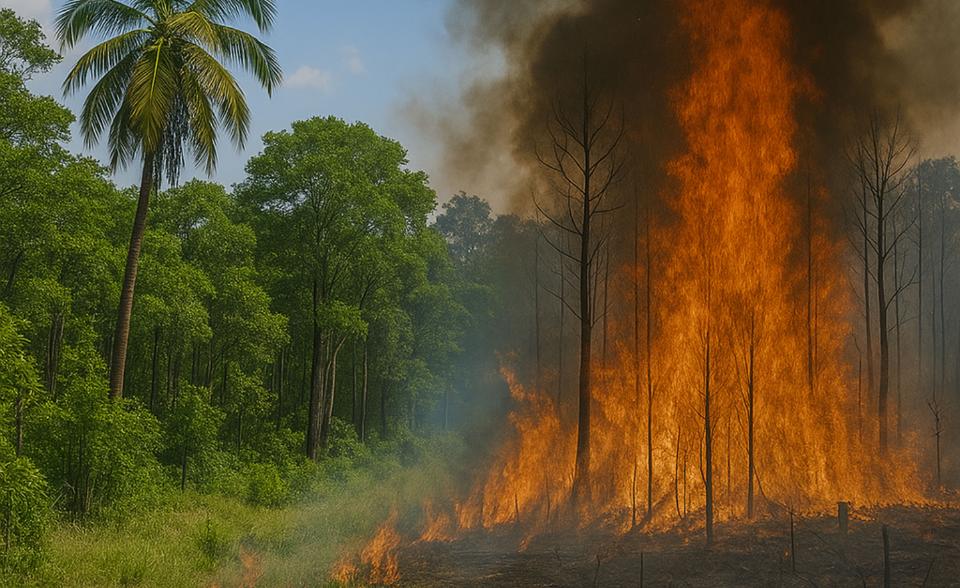-
Date:
12 May 2025
-
Location:
FCiências.ID Amphitheatre, Ciências ULisboa
-
Duration:
1h
-
Schedule:
12h00 (Lisbon time)
-
Lecturer or Responsible:
Samora Macrice Andrew, Professor in the Department of Botany, College of Natural and Applied Sciences, University of Dar es Salaam

Fire has long known to be associated with man offering different benefits including cooking different varieties of taste foods, warming houses and fortune telling. However, fire has also caused economic damages, biodiversity loss and even loss of human lives. It is therefore considered as social, environmental and economic issue. Here we present historical perspectives, trends, causes, impacts and management options of forest fires in the context of tropical Africa. Attempts are also made to carefully narrate and demonstrate how forest fires can be a good servant or a bad master. Found in tropical Africa, Tanzania with diverse culture, people and forests is used as a case study. The country is endowed with rich forests both natural and plantation forests covering almost 51% of the entire land surface area. Managed fires have been used to improve forests conditions, structure and palatability of fodder plant species but uncontrolled fires pose a significant threat to forests investments and environmental sustainability. To optimize forest productivity, it is important that fire is used in the right way (good servant) in line to the governing policies e.g. engaging local communities, raise awareness through continuing education and reinforce efforts to control forest fires. Contrary to that, uncontrolled fires (bad master) have long term consequences including on the environment, economy and livelihoods in tropical Africa.
Samora Macrice Andrew
Professor in the Department of Botany, College of Natural and Applied Sciences, University of Dar es Salaam, Tanzania


